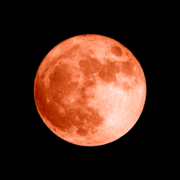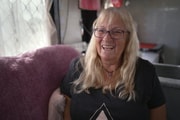Question 1: What is the only continent that spans all four hemispheres?
Question 2: The Eiffel Tower was originally intended for which city?
The Eiffel Tower was initially proposed for Barcelona, Spain, but the city rejected the project due to concerns that it would be an eyesore. It was ultimately built in Paris, France, for the 1889 Exposition Universelle (World's Fair).
Question 3: Where was Wolfgang Amadeus Mozart born?
Mozart was born on January 27, 1756, in Salzburg, which at the time was part of the Holy Roman Empire. He began composing at the age of five and went on to become one of the most influential composers of the Classical period.
Question 4: Who wrote the science fiction novel "Dune"?
Frank Herbert's "Dune" is often considered one of the greatest science fiction novels ever written. It was first published in 1965 and is known for its complex characters, intricate plot, and rich world-building. The novel has had a significant impact on the genre and has led to multiple adaptations, including films and video games.
Question 5: In the periodic table, what is the lightest halogen?
Fluorine, with an atomic number of 9, is the lightest halogen in the periodic table. It is a highly reactive, pale yellow gas at standard conditions.
Question 6: In what year did Neil Armstrong become the first human to set foot on the moon?
Neil Armstrong set foot on the moon on July 20th, 1969, during the Apollo 11 mission. He famously declared, "That's one small step for man, one giant leap for mankind."
Question 7: What is the term for the amount of energy a substance has per unit of mass, typically used to describe fuel sources?
Specific energy is a useful metric for comparing different fuels or energy storage mediums, as it tells us how much energy can be derived from a given amount of the substance.
Question 8: In the Harry Potter book series, what is the name of Harry's pet owl?
Hedwig was a gift to Harry from Rubeus Hagrid on Harry's 11th birthday. She's a Snowy Owl and served as Harry's loyal companion and mail carrier throughout the series until her tragic death in the final book.
Question 9: Which composer became deaf later in his life?
Beethoven began losing his hearing in his late 20s, and by the time of his last public concert in 1814, he was almost completely deaf. Despite his hearing loss, he continued to compose and produced some of his most famous works during this time.
Question 10: How many countries were initially part of the European Coal and Steel Community (ECSC)?
The European Coal and Steel Community (ECSC) was formed in 1951 by six European countries: Belgium, West Germany, Luxembourg, France, Italy, and the Netherlands. This organization marked the beginning of European integration and paved the way for future alliances such as the European Economic Community (EEC) and the present-day European Union (EU).






Africa is the only continent that extends into all four hemispheres – the Northern, Southern, Eastern, and Western hemispheres. It straddles the equator and the prime meridian, which are the lines that divide the Earth into these four hemispheres.